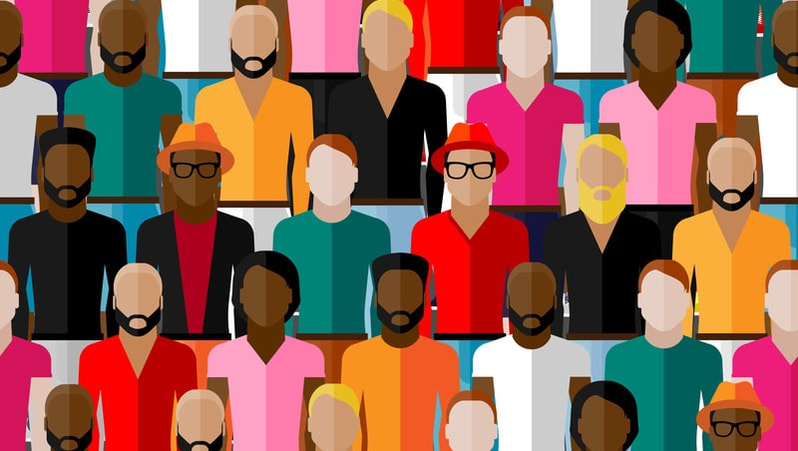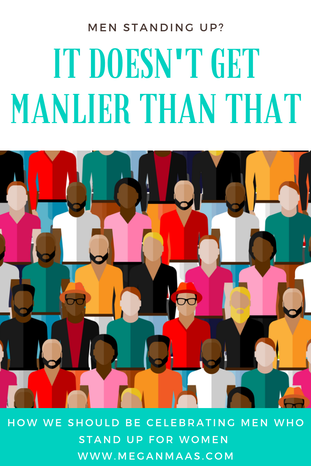
Copyright: Maksim Harshchankou/123RF Stock Photo
In case you’ve been living under a rock, Gillette recently released a new commercial that is largely a commentary on masculinity and modern manhood. When I first watched the short film, I felt tears well up. I felt a sense of relief. It felt like a sign of momentum for a movement that I am invested in. A year ago, I wrote an article warning the hopeful that ‘if men stay silent, this movement will end’. So I see this ad as a sign of men breaking the silence…a sign of progress.
As it goes, all social progress is met with some backlash. But backlash to this campaign? I was truly shocked. Why would anyone interpret this as an attackon manhood, men, or even masculinity? The boys are not playing with Barbies. The men are not staying home baking while their wives control them. This commercial features men being quite masculine. The men in the Gillette ad are using their power, strength, and assertiveness to call other men out who are being disrespectful or worse. It is encouraging the many men who step up instead of turn a blind eye to violence and bullying. This action takes courage, leadership, and decisiveness….all masculine qualities that we love! In academia, we call this active bystander behavior, which is one of the only factors that have been shown to reduce instances of sexual assault and harassment.
In my own work, we went to Twitter to examine this new national dialogue of holding men accountable for sexual harassment and assault. First, we did an analysis of the #NotOkaycampaign (which called out Trump on his degrading commentary from the Access Hollywood tape). In this analysis, we uncovered a subset of tweets urging men to engage in the prevention of sexual assault. We also uncovered a subset of tweets where men were condemning Trump’s excuse for his commentary as ‘locker room talk”. For example, “Men dont talk like this. Pathologically lying misogynists do but not men. Narcissistic orange scum bags do but not men.#notokay.” In another one of our projects (lead by Morgan PettyJohn), we examined the #HowIWillChangecampaign, which was a response to #MeToo. People (mostly men) used the hashtag to affirm how they would react or behave differently; like this dad, “One thing I want to do better is teach my son limits, boundaries, respect and kindness. And learn them with him. #HowIWillChange”. However, there were also subsets of tweets that showed hostile masculinity and indignant misogyny declaring that they would never change, or even treat women worse (particularly sexually). For instance, “#howiwillchange i wont “accidently” put it in her ass when we do doggy. i will now do it on purpose.”
I suspect this backlash is partly due to incorrect interpretation of ‘toxic masculinity’. Toxic masculinity does not mean that masculinity is toxic! Toxic masculinityrefers to a level of aggression, competition, and domination that becomes harmful to the self or others. This harm is almost always violence, but it can also fester into depression. In response to record-breaking suicide rates among men, the American Psychological Associationannounced toxic masculinity as a mental health crisis. I think we can all agree that we do not want our boys and men feeling pressured to be violent or non-emotional to prove their worth. What’s worse is that toxic masculinity is often paired with homophobia, misogyny, and racism. In fact, you can often decipher plain old masculinity from toxic masculinity when bigotry presents. For instance, I observed a man’s Facebook response to the ad, “It's lame at the least. A bunch of black doods telling white guys not to hit on women. And I'm sorry, but boys WILL be boys.” Toxic masculinity includes the fear of gay, black or brown men disrupting the power structure of white male dominance. Real, confident, secure masculinity is not threatened by diversity. #MeToo was and is about sexual assault survivors supporting other survivors. #MeToo is not an attack on the many good men out there. But somehow that is not being communicated. Now that we have some new momentum, why don’t we get the messaging right? The majority of us who want to hold men accountable for sexual misconduct and who challenge toxic masculinity do not want men to stop being masculine altogether. Like the Gillette commercial, we celebrate the many masculine ‘good guys’. Holding men accountable for bullying, harassment, and assault does not impede, cheapen, or challenge healthier masculine qualities and behaviors. Encouraging active bystander intervention does not imply that little boys should not get dirty, or grown men should not be soldiers, or that playing football is toxic. You can be a gun-toting UFC fighter and still respect all women, let other men be emotional, and intervene if others are being disrespectful. You can be a protective, assertive, male champion and still call men out on their toxic masculinity. In fact, it doesn’t get any manlier than that.
1 Comment
1/21/2019 08:58:31 pm
I for one was very thankful for the portrayal of men in this commercial. I'm a man in my 40s who has been married for 20 plus years with two teenage children at home. This commercial is a portrayal of want my children to be. My son is a responsible young adult. However, it doesn't end there. I want him to be a responsible adult. I have given him the tools to do so and even so there are times when I'm displeased with his attitude or comments. That's when I make Corrections in how he interprets things and show him there are other ways to view things.
Reply
Leave a Reply. |
About this Blog:I'm here to help us discuss sexuality, gender, and media by integrating information from academic and mainstream sources. I hope this resource produces more sexually competent people who raise sexually competent kids. Categories
All
|

